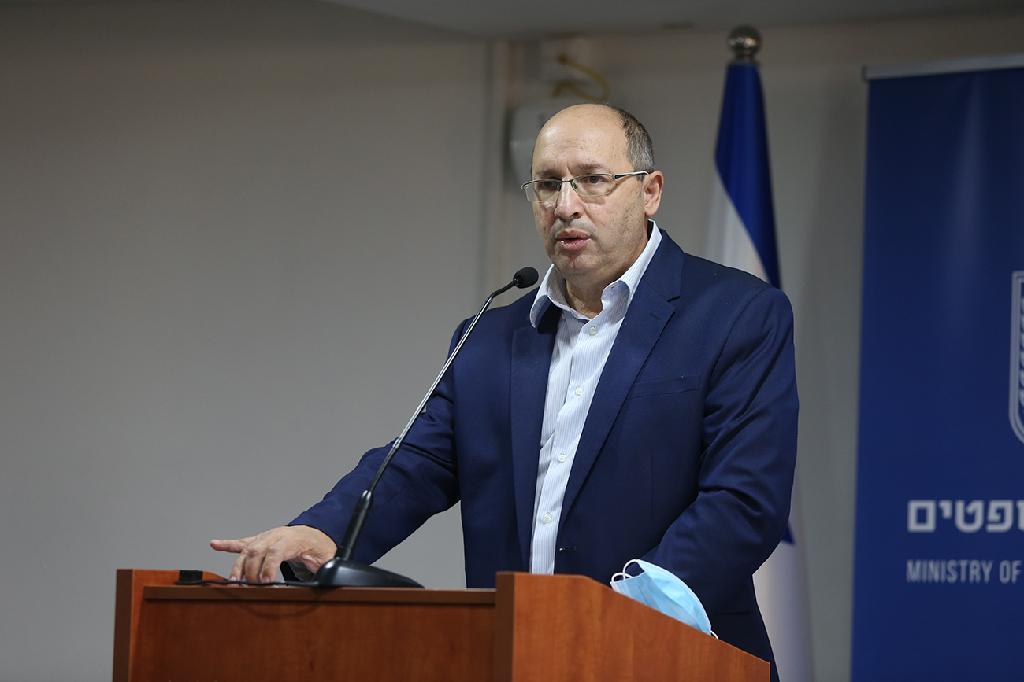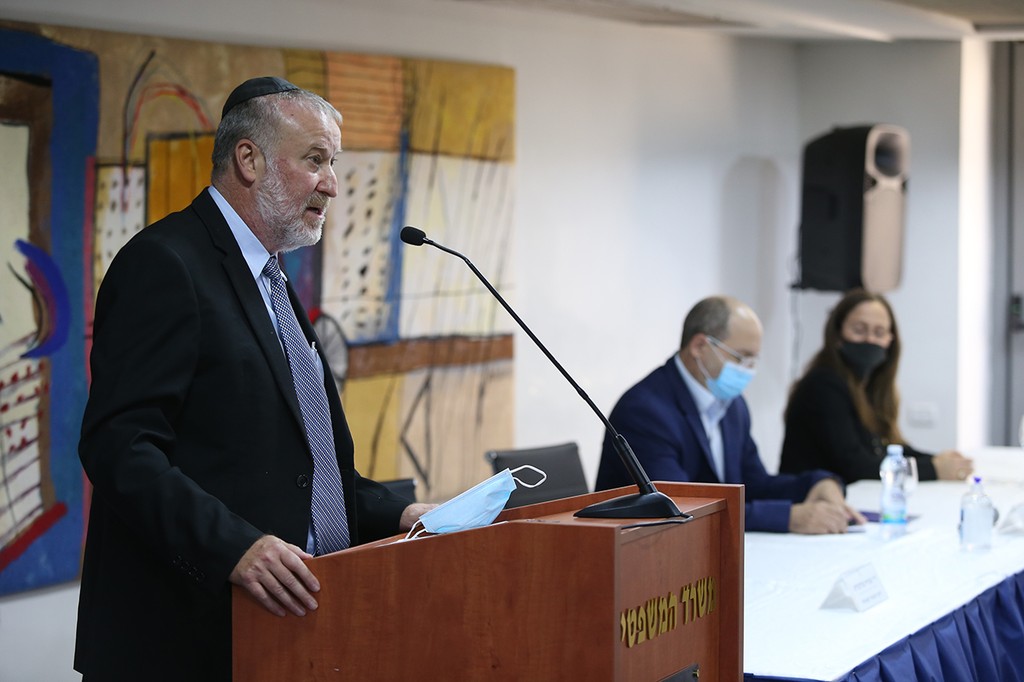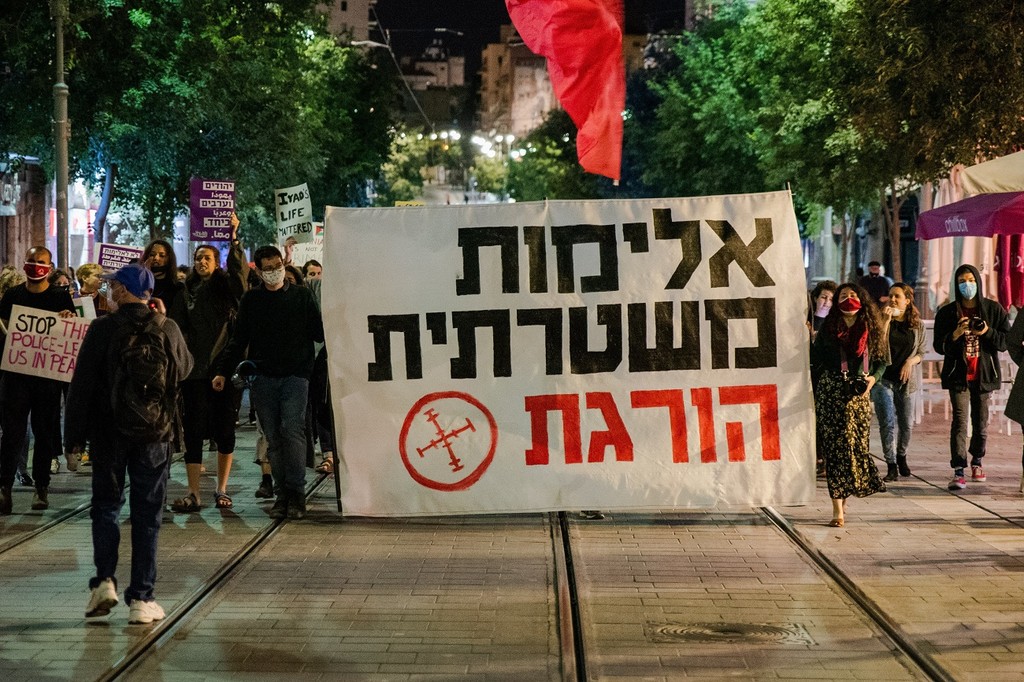Israel Police officers will no longer be responsible for conducting investigations into alleged wrong-doing within their own ranks, Justice Minister Avi Nissenkorn said Tuesday as he announced a series of reforms to the country's law enforcement.
According to the reform package, the Police Internal Investigations Department (PIID) will no longer be staffed by officials with ties to the police.
5 View gallery


Illustrative: Israel Police officers at the scene of an attack in Jerusalem
(Photo: Ohad Zwigenberg)
"The police will no longer investigate itself," Nissenkorn told a joint press conference with Attorney General Avichai Mandelblit and PIID director Karen Ben-Menachem.
The PIID was established in 1992 to combat rampant corruption and crime within the police force. While it is officially independent and under the jurisdiction of the Justice Ministry, in reality many of its employees are "on loan" from the police, a practice that the reforms outline says will end within three months.
A report published over the weekend by Ynet's sister publication Yedioth Ahronoth highlights severe problems with the police handling of such cases.
According to the report, Bar-Menachem's deputy allegedly tends to fast-track the closure of internal investigations. In 2017, before her appointment to the post, the unit filed charges against police officers in 124 cases. In 2018, that number almost halved to 69 and in 2019 it dropped again to 65.
According to a report from the Association for Civil Rights in Israel, over 80% of complaints filed over police brutality were never even investigated. Of the total complaints of police violence, the rate of indictments filed against police officers stands at between 0.6% and 3%.
Also decided was that the PIID would increase its crackdown on cases of incitement and would prioritize those cases for fast-tracking.
"Complaints filed to the unit on alleged charges of hate crimes, racism, homophobia or discrimination against people with disability - will be fast-tracked," Nissenkorn said.
"Only in special situations will these cases be closed due to 'lack of public interest," he added, with Mandelblit announcing that such a decision could only be authorized by the PIID director personally.
5 View gallery


Justice Minister Avi Nissenkorn unveiling reforms to internal police investigations
(Photo: Amit Shabi)
The Justice Ministry will work to increase representation for different groups in Israeli society among the PIID's employees.
"An emphasis will be given to the integration of members of the Ethiopian, Arab and ultra-Orthodox communities among the unit's ranks, in order to increase trust in the department and better its serve the public," Nissenkorn said.
The schedule for handling complaints filed to the PIID will also be shortened, with the unit being reinforced with additional attorneys to assist in this.
The department is due to present Mandelblit with a plan within 30 days to increase its case management speed.
5 View gallery


Attorney General Avichai Mandelblit discussing the new police reforms
(Photo: Amit Shabi)
Nissenkorn also said that the unit will increase its accessibility "to all citizens who wish to contact it." A new 24-hour telephone line is set to be established along with the unit's online presence.
The justice minister said that there would be an update on all of these reforms within 30 days and that they should all be implemented by the end of 2020 at the latest.
"This is a comprehensive reform that will change reality," he said.
"But at the same time this is not the end of it," he added. "I will examine the effectiveness of the reforms as we go along and where necessary, we will correct them."
5 View gallery


PIID director Karen Ben-Menachem discussing the new police reforms
(Photo: Amit Shabi)
"I hope and believe that we will do this in full cooperation with the police and the Ministry of Internal Security," Nissenkorn said.
"I have no doubt that the set of measures we will take in the near future will strengthen the PIID, the public's trust in it, and they will also help strengthen the force."
Mandelblit and director Ben-Menachem both expressed support for the reforms, saying that it was a positive move for the PIID to improve itself, while keeping criticism professional and not political, as part of the goal of strengthening the unit.


